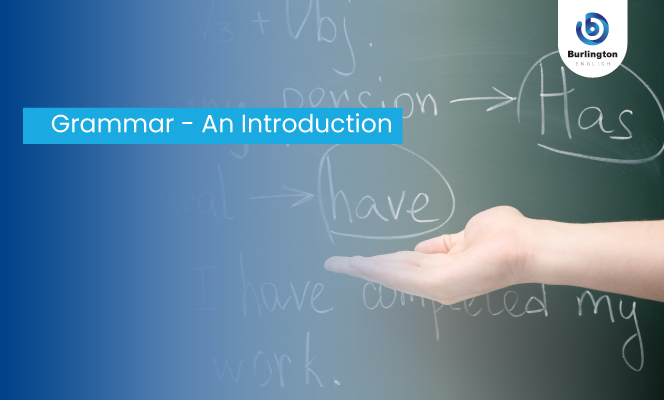What is Grammar?
It’s an area of the English language which dictates communication rules. Grammar is a set of language rules that allows one to combine individual words to make meaningful sentences. These words and sentences help us to be proficient in our communication when we use four basic skills of the language – listening, speaking, reading and writing.
Grammar can help you communicate more effectively by ensuring that your sentences are clear and understood by others. A solid understanding of grammar rules also gives you the confidence to create new sentences, clearly express yourself, and use English correctly both in written and spoken forms.
Grammar is critical for learning any language as it is a set of rules that dictates how a language works, making it easy to comprehend. Without proper grammar, one would have no idea how to speak or write in English. It helps us make sense of our words. It also dictates rules regarding how words are used and when they should be used. Without knowing this information, it would be impossible for us to understand anything or say anything at all!
The more we get familiar with grammatical rules, the more confident we will feel while speaking or writing in English. It will also help us avoid making communication mistakes that may cause confusion for our audience.
To enhance the basic communication skills, one needs to perfect the four LSRW skills – Listening, Speaking, Reading and Writing. The LSRW skills are a set of four capabilities that allow an individual to comprehend and produce spoken language for proper and effective interpersonal communication.
Listening– Listening is the active process of receiving and responding to spoken messages. When we listen to any conversation we try to understand the basic usage of the language in the form of words and sentences, trying to understand the basic usage of grammar (in the form of sentence structures) and vocabulary (focusing on pronunciation).
Speaking- While speaking, we aim for perfection in constructing sentences by applying correct grammar rules, enhancing our communication skills. In addition to grammar, we carefully choose words, paying attention to pronunciation and meaning. Grammar serves as a tool to improve communication by offering rules and patterns for sentence construction, while also aiding in understanding what others are saying and writing.
Reading– When we read, we try to focus on the correct usage of words, sentence construction and the meaning that emerges. To comprehend what we are reading it is essential to understand the rules of grammar that help if framing correct sentences. Grammatical knowledge, in general, refers to knowing the rule of grammar application in reading text construction of verb form, word order, and sentence structure.
Writing– Grammar helps you become a better writer by building a strong foundation for writing. Knowing how to use language correctly is essential for effective writing. While conversation may be casual, writing- whether it’s letters, emails, job applications, or articles- requires a solid understanding of proper grammar.
Why Study Grammar?
Learning grammar is important for many reasons such as:
- Expressing yourself: Grammar helps you express yourself clearly and coherently.
- Understanding complex ideas: As you become more proficient grammatically, you can express and understand more complicated ideas.
- Scoring well: Knowing grammar can help you get better grades in school and other competitive exams.
- Preparing for advanced learning: Challenges that come with more advanced learning, such as writing essays and interpreting literature require a strong grasp of grammar.
- Understanding online content: Grammar helps you understand what others are writing on the internet and take advantage of the abundance of academic information available.
Want to know what the main components of grammar are?
Let us explore!
Eight Parts of Speech- IVANCAPP
I- Interjection
V- Verb
A- Adjectives
N- Noun
C – Conjunction
A- Adverb
P – Preposition
P- Pronoun
Articles
Definite Article – The
Indefinite Article – A, An
Tenses
Real Sentences
Imaginary/Conditional Sentences
Change of Voice
Active and Passive Voice
Reported Speech
Direct and Indirect Speech
We hope that this blog has been informative. Stay tuned for more blogs on the several components of grammar. Language is complex but we are here to make English language learning fun and simple for you. Check out our books for a more comprehensive approach:
This is our resource for secondary school: Burlington English Grammar for Secondary School
Read through our blogs and reach out to us if you want information on a particular topic!







